How students can catch up on missed school time

A recent report from LSE and the University of Exeter, reveals that students throughout the UK have lost a third of their school learning time. This is even when home learning is taken into account.
Missed school lessons have been compounded by frequent disruption too. The need to self-isolate or close bubbles has simply meant extra pressure for schools, teachers and students to deal with.
Here, we take a look at why it’s so important for students to catch up on what they missed and what can be done about it.
Why is it important to make up for lost school time?
For many parents and students, the novelty of missing school very quickly wore off. It’s not just a place for book learning. It’s a chance to be with friends, play sport and try new activities. The fact that students have not enjoyed all the rich variation that school provides. This means they’re missing out on a lot more than knowledge about maths, English and science – it’s all the social aspects too.
It’s a problem that leading educational think tank, the Education Policy Institute has picked up on. According to their Executive Chairman, David Laws: ‘Children have fallen behind in their learning with the worst disruption to learning since the Second World War’.
Hegoes on to add that ‘If this pandemic is not to scar this generation of young people the country needs to put in place an ambitious education recovery plan, based on sound evidence and sufficient funding. If we fail to make good the lost learning, there will be significant adverse implications for skills, earnings, economic growth and social mobility’.
It’s a devastating statement and highlights just how crucial school is to our children’s development and long-term outcomes.
How can students catch up?
Covid catch-up funding has been allocated to all schools. But (as has been documented in the press) it’s not sufficient to deal with the complexity of needs.
The Centre for Economic Performance analysed the effects of learning loss and various ideas suggested to help students catch up, included:
- Extending the school day with a particular focus on social and sporting activities as well as pastoral care and support.
- Giving some students the chance to repeat the school year.
- Providing summer wellbeing programmes offering support from qualified mental health workers.
Another suggestion includes incentivising our most talented teachers to work in the most challenging areas. However, this does have practical limitations. Additional funding has also been allocated to allow schools to explore tutoring options within the National Tutoring Programme. This would provide groups of up to three students and give them the benefit of (predominantly) online tuition.
While these are all good ideas, they rely on schools to accommodate and implement changes that aren’t always reasonable or possible. Even the idea of online learning – while good in theory, do children really want to spend more time learning digitally? Not only is it tiring, students learn best when they feel secure, and this can be better encouraged if learning is face to face.
Solutions from The Community Schools
At The Community Schools, we’ve been proactively supporting Suffolk schools in helping students catch up on missed school time. We’re proud to have worked with King Edward VI and the Sybil Andrews Academy in Bury St Edmunds, as well as Stowmarket High School.
We provide additional help in a range of school subjects including maths, science, English, French, German and Spanish. All our tutors have classroom experience and are up to date with their subject curriculums. Most importantly, we want to help children thrive educationally and enable them to meet their full potential.
For more information or to enrol in our summer school which starts 16 August, contact us on 07747 037441 or complete a registration form.
SIGN UP TO RECEIVE INFORMATION ON OUR COURSES
Last Updated on January 11, 2024
